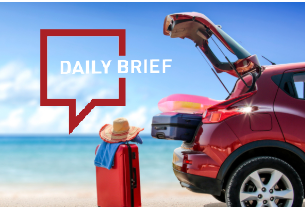Allen said over the years the trade has labelled customers in certain ways, but now the trade should view consumers through different categories.
He said: "We´re used to segmenting our customers according to age or lifestyle or [whether they are] in a relationship." Citing research recently released by Harvard University psychologists, Allen said there are four new groups to put consumers in.
He said the first group are known as Slam the Brakes On. People in this category are at the lower end of the earnings chart and are most affected by the downturn, reacting to it by halting spending to save cash.
The second, Pained But Patient group, will feel the pinch but can still be persuaded to buy products as long as they convinced they are getting value for money.
The Comfortably Well Off group are in the top 5% income bracket and are unlikely to be financially troubled, although they may become more discreet consumers.
Finally, the Live for the Day group mainly consists of young urbanites who see little need to change their spending at all.
All groups can be sold holidays, but must be viewed through this financial model as opposed to previous social definitions.
Allen said that due to the depth of the financial crisis, the trade may find travel sales will take longer to return to normality than in previous years. He said: "The more prolonged this recession is, the bigger change to consumer behaviour."
Allen also spoke of the profound change the internet continues to have on the travel market, with online sales now accounting for 50% of all travel business in the US. He said: "The internet has changed the travel industry more than any other, apart from gambling and pornography.
"We were unprepared for the real change, which is giving the consumer the power of knowledge. They have probably been on the internet and know much more [about a destination] than you do."
However, he said recent events still prove the need for established and trusted brands to stay in the market. "Since the collapse of XL Leisure Group consumers are a lot more focused on working with companies where they know their money is secure."




